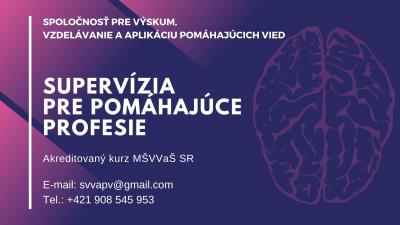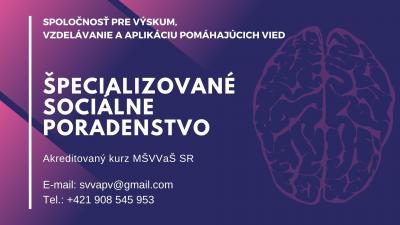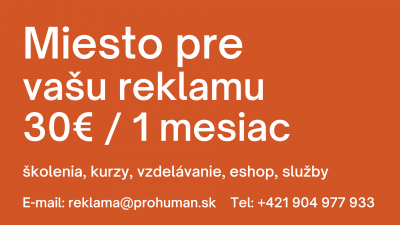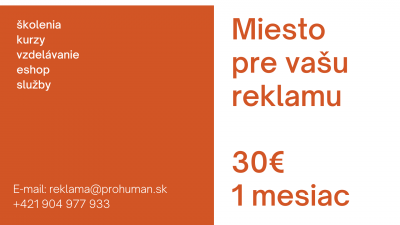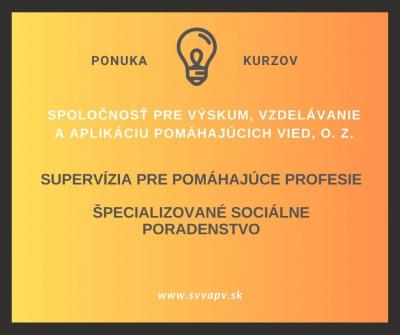Abstract: Submitted article analyses the term “value“, its definition, history, its division and classes, and lastly its relationship towards literature. The aim is to examine how literature expresses and disseminates values and how literary work could impact reader´s hierarchy of values. Furthermore, the article also advises what is necessary to take into consideration before potentially starting a research of values.
Key words: analysis, value, literature, history, definition
 Photo by Daria Nepriakhina on Unsplash
Photo by Daria Nepriakhina on Unsplash
Submitted article focuses on value paradigms in literature. The article is divided into four parts that help to further analyze the term with emphasis on its relationship with literature. At the beginning, we defined the term “value” as such. It was introduced for the first time as a part of science at the turn of the 20th century. Furthermore, it was established that it is an interdisciplinary term since it could be examined through multiple angles and areas of science- philosophy, sociology, ethics, psychology, etc. Values became an integral part of everyday life for human beings, since we all have a set of values that rule our conduct.
The article further analyses the history of the term while concentrating on its development in the context of literary theory. Moreover, we provided the information about the most important influences, writers and lastly, clarify historical circumstances that led to formation of the term.
As we have already stated, its history began at the turn of the 20th century when it became a part of philosophy. The term was introduced by Hermann Lotze (1817 – 1881) and Franz Brentano (1838 – 1917). Apart from philosophy, during Victorian times, famous Irish writer Oscar Wilde further expressed the need to get rid of the connection between literature, art and morality. His ideas were perceived as avant-garde and therefore not in accordance with other contemporary writers. Later in the period of poststructuralism and postmodernism, came the change and gradually more writers, readers, critics and publishers understood the need of perceiving them as different spheres.
The following part of the article offers the division and classification of values. At the beginning we started with definitions that were simpler, while we proceeded with the ones that were more extensive and richer in content with regard to different view of multiple authors. First of all, it is crucial to understand that every individual has his/her own set of values and therefore division and classification could vary according to author. We began with the definition by Italian professor Felice Battaglia who classifies values according to desires. Sociology provided its own definition and divides them into life and cultural. Frankl distinguishes and defines values into: creative, experience, attitude. Later, he further develops following classes of values: unknown values, known but not recognized values, recognized but unwished values and wished values. On the other hand, Váross presented his own set of classifications when he divided values into economic, biological, moral, aesthetic, gnoseological and performance. It´s possible to see that there are many possibilities when it comes to classification of values, and for this reason, researcher has a choice according to preference and purpose of a given research.
The last as well as the most important part of the article points to direct connection between values and literary theory, its relationship and links. We similarly describe methods and possible steps while doing theoretical research of values. What concerns possible approaches, it was recommended to use ethical or rhetorical approach to narrative fiction founded by Wayne C. Booth. The hypothesis lies in the assumption that narrative technique can have profound ethical and moral implications. Moreover, according to Baumbach writers use narrative and rhetorical strategies in order to express their world-view and hierarchy of values.
There are also strategies of mediating values and drawing attention of readers to moral problems and issues when doing the research. Authorial narration with an omniscient narrator uses comment and reflection in order to provide a moral orientation for the reader. When it comes to point of view narration, it´s a reader´s task to decode norms, values and qualities through social interactions, texts in the literary tradition and media of other symbolic systems.
The last and similarly the most important part of the article focuses on literature and what kind of methods and techniques it uses for presenting values. There are multiple possibilities that could be used when it comes to analysis of a particular work. Through narrative techniques writers try to deliberately influence and manipulate the reader and push his/her mind towards further understanding of issues in the chosen work.
Moreover, the article analyses what is essential to know about a literary work before examining it. The importance of choice of the work directly correlates with the purpose of the research while also taking into consideration of how, and with what literary methods, techniques, cultural notions of norms and values are represented in a given text. This could be a determining factor of the success or failure of a potential research.
Definition of the term
Nowadays, values became an integral part of our lives, a great source of motivation, they represent goals that we would like to reach, define our personality. As a basic column of every culture, values and value orientation of a person represented the centrum of attention of various sciences and disciplines. [Ištvániková, 2009: online]
„The value“ was defined for the first time as a part of science at the turn of 20th century and has been the subject of the historical change. It is an interdisciplinary term since it could be perceived through multiple angles and it´s a part of multiple areas- philosophy, sociology, ethics, psychology, etc.
It is possible to say that the „term“ value and the need for its clear definition in terms of literary criticism has been renewed only recently, in the last two decades. The emphasis was placed on ethical dimension and therefore the relationship between the term „value “ and ethics. [Baumbach, 2009: 3]
There is no set definition of the term, however, we are offering a few of them. Philosophy comprises the nature of value through Axiology, the part of philosophy that not only defines the value as such, but also examines its hierarchy and relationships towards society and structure of the human personality. More specifically, it studies all what an individual could perceive as valuable, therefore its object could be anything. Many of these were already placed in the pyramid of ideas created by Plato, which according to him, represents the essence of the world that we live in. [Huráková, 2017: 14]
According to sociologist Robin Williams, values are complex „pre-codings“ that are a result of learned fusions of „cognitive-conceptual with imperative elements.“ [Rokeach, 1979: 2]
On the other hand, ethics concentrates on the moral side of human values, e.g. defines what kind of values are in accordance with „proper“ social conduct and which are not.
From psychological point, it is possible to understand the value as a result of individual´s way of upbringing. It was proved that there is connection between individual´s childhood and what kind of values s/he adopts in the adult age. To conclude, we can add that values not only define our personality and guide us but also serves as a certain set of standards by which we evaluate and assess the behaviour of people around us.
History of the term
As we have already stated before, the term value was defined for the first time at the term of the 20th century however it is possible to find references and annotations to this term sooner. The value as a part of philosophy was introduced by Hermann Lotze (1817 – 1881) and Franz Brentano (1838 – 1917). Lotze proved the importance of exact research of values, clearly and comprehensibly expressed reasons for its realization. He claimed that, values basically concern all human actions and cognition. He also supported teachings of Kant about transcendental, timeless essence of values independent from human experience. His colleague Brentano considered values as life experience and perceived the issue of moral actions as a question of the choice between the good and evil in which the will decides. The above stated theory was later developed into concept of social desirability as the basis of the current theory of hierarchical arrangement of individual and group values. [Ištvániková, 2009: online]
During Victorian times, Oscar Wilde shared his opinion by expressing his intention to get rid of the connection between literature, art and morality once and for all. This avant-garde view was not in accordance with the majority of his contemporaries. Later, in the period of poststructuralism and postmodernism, there were gradually more writers, readers, critics and publishers who supported the idea that literature and morality could be perceived as two different spheres. This was largely presented by postmodern writers like John Barth, Donald Barthelme, Richard Brautigan, Robert Coover or Thomas Pynchon. Instead of offering works that would try to moralize and lecture directly, there emerged the need to provide works that give practical examples of a proper conduct. This kind of literature ensured more success as they offer a wide range of aesthetic possibilities, readers/listeners would be less involved and finally, are more exposed to exterior influences. [Baumbach, 2009: 3]
Division and classes of values
First of all, it is necessary to emphasize that every person could have different set of values while we do not realize their impact on our everyday life. Division and classes of values can be perceived from multiple angles since authors offer various definitions. For this reason, we have decided to offer a few examples.
Simple division of classes of values was offered by Italian professor Felice Battaglia who classifies them according to desires as biological, economic, aesthetic, moral, religious.
Sociology divides values into life and cultural. Life values comprises health, affluence, recognition, happiness, family. Cultural values include spiritual values, material values, social and political values. [Hrehová, 2002: 20]
Frankl distinguishes and defines following classes of values:
a) creative values – the person considers as a value what s/he created for the world himself/herself. The meaningfulness of human life is determined by his/her actions, work etc.
b) experience values – they represent everything that person receives from the outside world through relationships, meetings, experiences, through experiencing feelings, emotions, friendships, through getting to know and perceiving the outside world etc.
c) attitude values – their impact lies in the ability to cope with a difficult situations, unfavorable conditions, suffering
Frankl continues to divide into following categories:
- unknown values– the ones that already exist however they were not yet adopted by a young person because s/he never experience them;
- known but not recognized values – the ones that are already known to a young person but s/he refuses to adopt them;
- recognized but unwished values –the ones that a person values in other people but s/he did not adopt them;
- wished values– the ones that are motivational for a young person and became his/her goal; [Frankl, 1990: 63]
Váross also did research of values and as a result formed 6 following categories of values:
- economic values – they have slightly different ontological status than other values and they are similarly a subject of research of a different scientific discipline (political economy);
- biological values – they do not cover only the object or the process that fulfils biological needs. In this case the value is perceived specifically as anthropological and by its essence as a creative form of control of the reality;
- moral values – values that by their content and reach influence human relationships and actions;
- aesthetic values – are the ones that are communicated through simple sense contact of a human being with things;
- gnoseological values – the values of cognition related to the term truth;
- performance values – concerns the value of actions through which a person overcomes himself/herself, reaches new areas and goals. This could have multiple aspects: moral, aesthetic, gnoseological, biological, economic [Váross, 1970: 24]
We could have offered even more possibilities but there is no set division or class of values when it comes to research. Some of these classifications have similarities and it gives researcher a possibility to choose according to his/her beliefs and preferences and purpose of the research.
The value and theoretical approaches in literature
One of the approaches that could serve for discerning values is the ethical and rhetorical approach to narrative fiction founded by Wayne C. Booth and further developed by James Phelan and Peter Rabinowitz.
„It is based on the hypothesis that narrative technique can have profound ethical and moral implications and that writers use narrative and rhetorical strategies in order to disseminate their world-view and hierarchy of values.“ [Baumbach, 2009: 4]
We distinguish strategies of mediating values and drawing attention of readers to moral problems and issues that are related to basic modes of narration such as:
(1) authorial narration with an omniscient narrator: through comment and reflection, the narrator provides a moral orientation for the reader
(2) point of view narration: in this case it´s a reader´s task to decode norms, values and qualities through social interactions, texts in the literary tradition and media of other symbolic systems.
Moreover, literary texts could be perceived as a valid, alternative or different norms and values by textual means and literary techniques. This proves that it is possible to experiment with them, and model the system of values according to writer´s ideas and intentions. This kind of literary production was proved to have an effect on an extra-literary reality and for this reason demonstrably contributes to the forming as well as the stabilization of norms and values, and social conceptions of a good life.
When examining a particular literary work, it is necessary to take into consideration of how, and with what literary methods, techniques, cultural notions of norms and values are represented in a given text. Therefore, literature serves as a medium of the representation of extra-literary norms, values and similarly as a medium that could create new or alternative hierarchies of norms and values.
Furthermore, literature comes into view as a medium for dissemination of norms and values that are generally accepted by society or alternative values. Literature could be also perceived as a medium for the construction of norms and values.
Thirdly, literary texts could also serve as a medium for the construction of norms and values. In this case the author presents his/ her own set of values and subsequently influence readers through his/ her work.
In order to provide a complex analysis of the literary work and to examine its potential and value for a reader, there are two dimensions that has to be taken into account:
a) the first one concerns the specific potential of the medium of literature, through its aesthetic forms, to thematise, represent, and disseminate norms and values in their cultural contexts
b) the second one examines the potential of the medium of literature to actively construct and generate norms and values, as well as to question and critique, prevailing value-hierarchies and collective views [Baumbach, 2009: 6]
To sum up, it was unequivocally proved that there is a direct interconnection between values and literature. Through this unique kind of relationship, it is possible not only to observe and see author´s own personal set of values and beliefs but also to explore them in general. Every single reader has its own established beliefs and therefore perceives the given work differently while he/she also grasps new perspective and ideas from author. This assumption could be very beneficial for research of values in literature and similarly serves as its potential inspiration.
SUMMARY
Submitted article presented value paradigms in literature. The article is divided into four parts that are connected with the chosen area. In the first part, we defined the term value from multiple angles however, there is no set definition of the term. For this reason, it´s possible to say that it is an interdisciplinary term.
The article further analyzed the history of the term while concentrating on its development in the context of literary theory. Moreover, we also stated the information about the most important influences, writers and lastly, clarified historical circumstances that led to formation of the term.
The following part of the article offered the division and classification of values. At the beginning it´s possible to see definitions that were simpler, while we continued with the ones that were more extensive and richer in content with regard to different view of multiple authors.
The last and similarly the most important part of the article represents the direct connection of value with literary theory, its relationship and links between. We similarly described methods and possible steps while doing theoretical research of values. There are multiple possibilities that could be used when it comes to this kind of research, however, this article particularly explored how literature expresses and disseminates values to a reader and also how it could influence his/her world-view. Through narrative techniques writers intentionally try to affect the reader and push his/her mind towards deeper understanding of issues in the chosen work. Experimenting with various techniques considerably impacts not only the quality of the text but also the chance of influencing a reader while similarly pointing him/her to the direction of right hierarchy of values. All these facts support Baumbach´s hypothesis that “narrative technique can have profound ethical and moral implications and that writers use narrative and rhetorical strategies in order to disseminate their world-view and hierarchy of values.“
Furthermore, the article analyzed what is essential to know about a literary work before examining it. The choice of the work has to be in accordance with the purpose of the research while taking into consideration of how, and with what literary methods, techniques, cultural notions of norms and values are represented in a given text. This proves that the choice of the work has to be done thoroughly and knowingly before even considering to start the research in order to be successful.
Author: Mgr. Barbora Kolářová
BIBLIOGRAPHY
BAUMBACH, S. & col.: Literature and Values, Literature as a Medium for Representing, Disseminating and Constructing Norms and Values, WVT Wissenschaftlicher Verlag Trier: Trier, 2019, s. 15. ISBN 978-3-86821-143-6.
FRANKL, V. E.: Dynamika a hodnoty. Čsl. psychol. č. 6, 1990. s. 63.
HREHOVÁ, H.: Filozofia hodnôt a aktualizácia cností v kultúre 21. storočia. Bratislava: IRIS, 2002. s. 20.
HURÁKOVÁ, S.: Kategorizácia hodnôt a jej uplatnenie v aplikovaných etikách, Nitra: Univerzita Konštantína Filozofa v Nitre, 2017. s. 58.
IŠTVÁNIKOVÁ L., ČIŽMÁRIK, M.: Hodnoty a hodnotové orientácie v zrkadle dejín. Vedecká štúdia 2007. [online] [cit. 07.12.2020]. Available online: http://www.saske.sk/cas/archiv/2-2007/cizmarik.html.
KLIMEKOVÁ A, SIČÁK, A.: Základy filozofie, etiky, andragogiky. Banská Bystrica: Trian, 2002. s. 42-43.
ROKEACH, M.: Understanding Human Values, London, The Free Press, 1979, s. 328. ISBN 0-7432-1456-0.
VÁROSS, M.: Úvod do axiológie. Bratislava: Epocha, 1970. s. 240.
